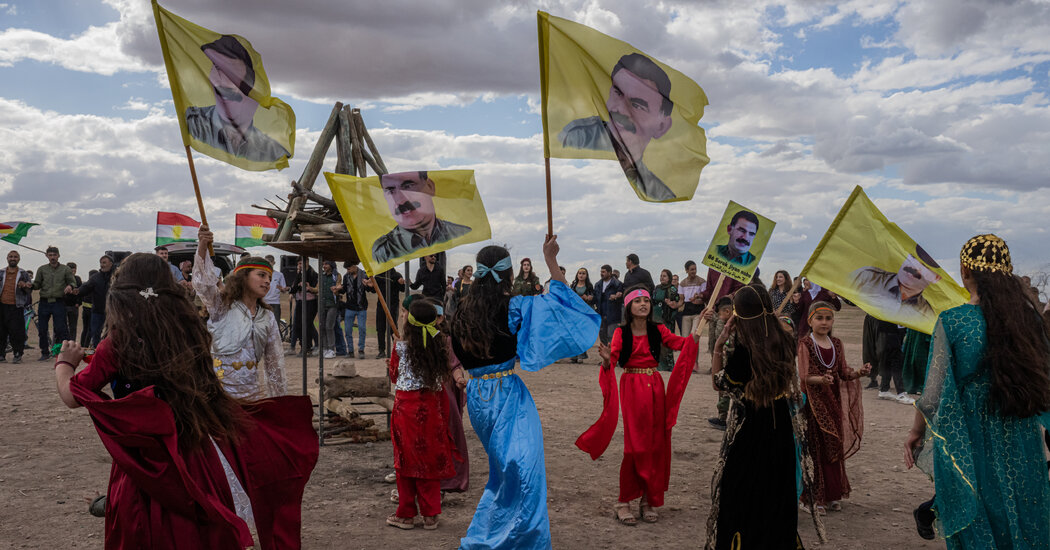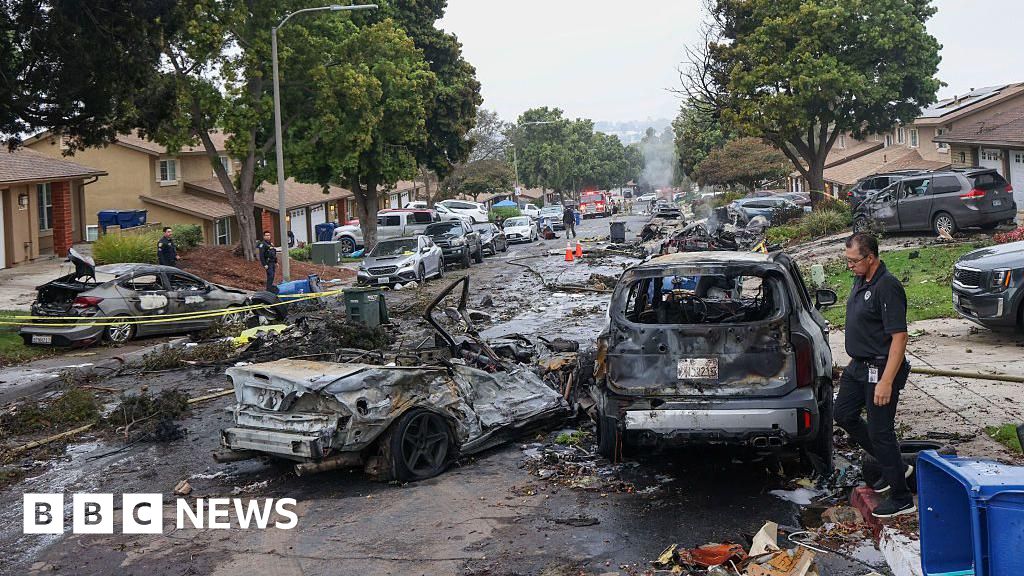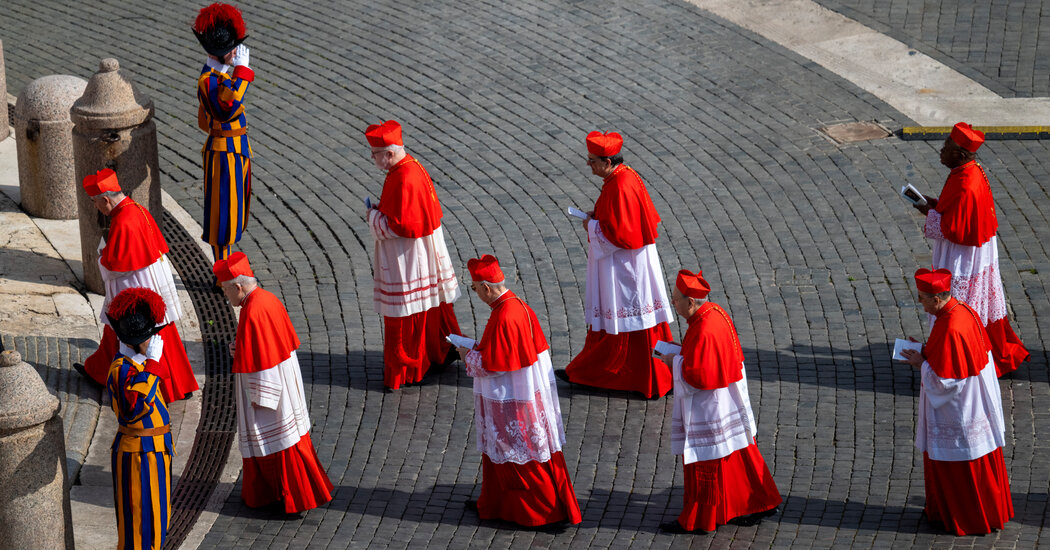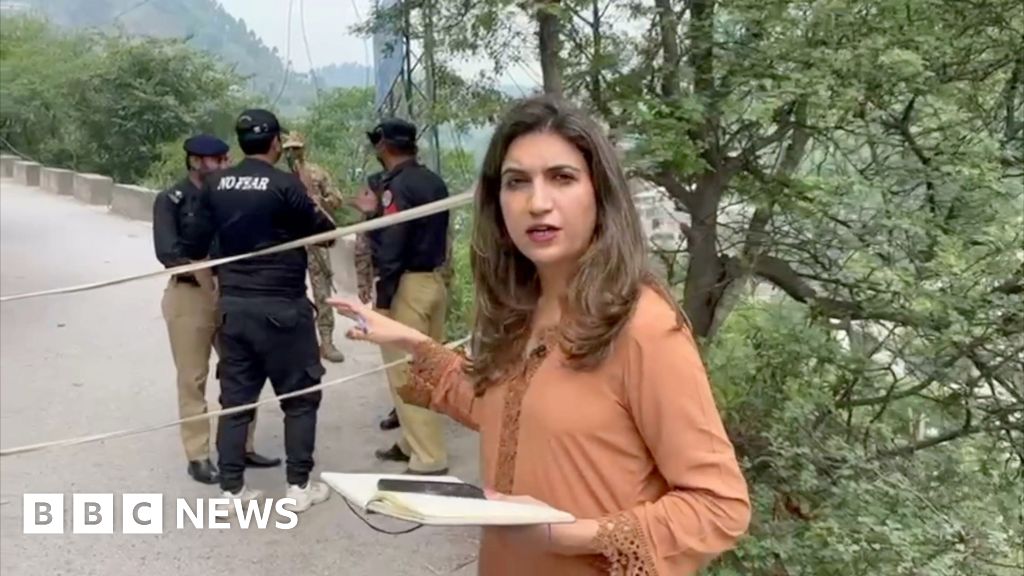[ad_1]
The Kurdistan Workers’ Party, known by its Kurdish acronym P.K.K., said on Monday that it would lay down arms and disband, ending a decades-long armed insurgency against the Turkish state.
The announcement came several months after the group’s imprisoned leader, Abdullah Ocalan, urged his followers to disarm and disband. The move could reshape Turkish politics and reverberate in neighboring countries.
The P.K.K. began as a secessionist group that sought to create an independent state for Turkey’s Kurdish minority. More recently, it said it sought greater rights for Kurds inside Turkey.
More than 40,000 people have been killed in four decades of conflict, both in P.K.K. attacks on military and civilian targets, and in Turkish military operations against the militants and the communities that harbor them. Turkey, the United States and other countries consider the group a terrorist organization.
Here is what to know about the P.K.K. and its conflict with Turkey.
What is the P.K.K.?
The group began fighting the Turkish state in the early 1980s, originally seeking independence for the Kurds, who are believed to make up about 15 percent of Turkey’s population.
Starting from the mountains in eastern and southern Turkey, P.K.K. fighters attacked Turkish military bases and police stations, prompting harsh government responses. Later, the conflict spread to other parts of the country, with devastating P.K.K. bombings in Turkish cities that killed many civilians.
During the past decade, the Turkish military has routed P.K.K. forces from major Kurdish cities in southeastern Turkey and used drones to kill its leaders and fighters, hindering the group’s ability to organize and carry out attacks.
The conflict has been on a low boil for years, although occasional P.K.K. attacks have revived fears of a wider conflict. Last year, a small squad of its militants stormed into the headquarters of a state-run aerospace company armed with rifles and explosives and killed five employees before the security forces regained control.
Who is Abdullah Ocalan?
Mr. Ocalan is the founder and leader of the P.K.K. He has been in a Turkish prison for a quarter-century.
Many of Turkey’s Kurds view Mr. Ocalan as a potent symbol of the struggle for Kurdish rights. And despite his imprisonment, he still wields great influence over the P.K.K. and its affiliated militias in Iraq, Iran and Syria.
Mr. Ocalan founded the P.K.K. in the late 1970s with a group of other rebels and largely ran the organization from neighboring Syria as it launched attacks in southeastern Turkey and, later, in other major Turkish cities.
In 1998, Syria forced him out and he traveled to Greece, Italy and Russia to seek asylum, before Turkish intelligence agents, with help from their U.S. counterparts, captured him on a plane at an airport in Nairobi, Kenya, on Feb. 15, 1999.
After his capture in 1999, he was incarcerated on Imrali Island in the Sea of Marmara, south of Istanbul, where he was the only prisoner for many years.
That same year, Turkey convicted him and sentenced him to death. The sentence was commuted to life imprisonment after Turkey abolished the death penalty as part of its bid to join the European Union.
Since his incarceration, Mr. Ocalan has shifted the P.K.K. ideology away from secession and toward Kurdish rights inside Turkey.
In a February message from prison, Mr. Ocalan said that the group’s armed struggle had outlived its initial purpose and that further progress in the struggle for Kurdish rights could be achieved through politics.
On Monday, the group echoed Mr. Ocalan’s call to disband, saying in a statement that it had “carried the Kurdish issue to a level where it can be solved by democratic politics, and the P.K.K. has completed its mission in that sense.”
The group said that Mr. Ocalan should lead the process of disarming and called on Turkey’s Parliament to take part.
How does Turkey see Mr. Ocalan?
For most Turks, Mr. Ocalan remains the country’s most hated terrorist.
Human rights groups criticized his isolation on Imrali Island. In 2009, five other prisoners were sent to the facility, and Mr. Ocalan was allowed to meet them a few times a week, according to Turkish news reports.
But in recent years, Mr. Ocalan and the island’s other inmates were not allowed any visitors, not even their lawyers, or any phone calls with family members.
In October, a powerful political ally of President Recep Tayyip Erdogan, made a surprising public call to Mr. Ocalan, requesting that he tell his fighters to lay down their arms and end the conflict.
That led to limited visits from relatives and political allies of Mr. Ocalan to explore the possibility of a new peace process.
What happens next?
The next steps were not immediately clear. The P.K.K. and pro-Kurdish politicians have called for Mr. Ocalan’s release or at least for a loosening of the restrictions on him to allow him to oversee disarmament.
It was also not immediately clear how the decision would affect P.K.K. bases hidden in the mountainous areas of Iraq’s northern Kurdish region. Turkey has repeatedly bombarded P.K.K. strongholds in northern Iraq, as well as the group’s offshoot controlling northeastern regions of Syria, branding them a terrorist threat near its borders.
Turkish officials have said publicly that the government offered no concessions to the P.K.K. to persuade it to disarm. But officials from Turkey’s main pro-Kurdish party have expressed hope that the government would expand cultural and educational rights for Kurds.
The P.K.K.’s declaration could influence other Kurdish militias, particularly in Syria, and shift regional dynamics beyond Turkey’s borders.
It could also expand support among Kurds for President Recep Tayyip Erdogan, which many analysts suspect that he covets to change the Constitution and seek a third presidential term.
Who are the Kurds?
The Kurds are an ethnic group of roughly 40 million people — there are widely varying estimates — concentrated in Iran, Iraq, Syria and Turkey.
They speak multiple dialects of Kurdish, a language not directly related to Turkish or Arabic. Most are Sunni Muslims.
The Kurds were promised a nation of their own by world powers after World War I, but that was never granted. There were Kurdish rebellions in various countries over the following generations, and Kurds have faced state suppression of their language and culture.
In Syria, the Kurdish-led Syrian Democratic Forces, whose leaders have roots in the P.K.K. and follow Mr. Ocalan’s ideology, control the northeastern part of the country. They have been backed for years by the United States and played a crucial role in defeating the Islamic State.
But the fall of the Syrian dictator Bashar al-Assad in December has left their future status unclear. They are clashing with Turkish-backed Syrian Arab rebels, and they remain outside the control of the new Syrian government in Damascus.
Since the 1991 Gulf War, the largely Kurdish northern region of Iraq has been semiautonomous. The P.K.K. leadership is now based in the Qandil Mountains of northern Iraq. In recent years, Turkey has attacked the group and affiliated militias in Iraq and Syria, and has lobbied the Iraqi government to expel it.
How did previous peace efforts fare?
Multiple efforts to freeze or end the Turkey-P.K.K. conflict have been made, starting with a cease-fire in 1993. But all of them collapsed, often leading to greater bloodshed.
Violence flared on and off until a round of peace talks began in 2011. At that time, Turkish intelligence officers met with Mr. Ocalan in prison to map out a plan for his fighters to disarm, and Kurdish politicians ferried messages between him and his associates in northern Iraq.
But the process collapsed in mid-2015, with each side blaming the other for the failure. One of the conflict’s most deadly phases followed, with pitched battles in cities in Turkey’s southeast that killed more than 7,000 people, according to the International Crisis Group.
[ad_2]
Source link



